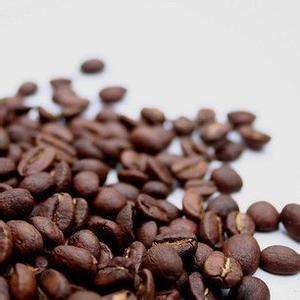Flavor description of coffee beans in Sunshine Manor in El Salvador taste grinding scale
Flavor description of coffee beans in Sunshine Manor in El Salvador taste grinding scale
The coffee variety of Santa Teresa Coffee Manor is Pacamara (hybrid of Bourbon and Maragogype), flowering period: April to May, harvest time: December to March, washing, natural drying. Santa Teresa Coffee Manor is located with fertile volcanic soil and rich natural hot springs. The water temperature of the source is 85 degrees. A 2-inch pipe is used to direct the water to six hot spring pools at different elevations. The temperature at the sixth hot spring pool is 32-34 degrees, and then the cooled hot spring water is used to process raw coffee beans.
Salvadoran coffee inherits the mild quality of Sino-American coffee, which is soft, slightly sour and has a beautiful sweetness. At the same time, it also has its own characteristics: the aromatic taste is slightly sour and very soft; it is pure and has no miscellaneous flavor, and the taste balance is excellent; the smooth feeling like cream chocolate is impressive; the dense feeling of coffee in the mouth gives the coffee a deep taste and a long finish.
In 1990, the cooperative "Sociedad Cooperativa Ahuasanta" was willing to deal with all his Pacamara species and signed a contract with him. Great progress was made when Eduardo Francisco used his planting technology to harvest mature coffee cherries and careful post-harvest treatment to make the Pacamara species of Pacamaral Manor shine brilliantly. It won 24th place in 2003, seventh place in 2005 and runner-up in 2008.
Coffee production in El Salvador. In its heyday, it was once the fourth largest coffee producer in the world, but decades of civil war almost dragged down the coffee industry. fortunately, the war has stopped in recent years, and the coffee industry has come back to life. The only benefit that the civil war brought to the country of El Salvador was that the farmers left their fields barren and failed to catch up with the most popular Katimo sun-exposed cultivation train in the past two decades, thus preserving the ancient varieties of bourbon and Tibica, that is to say, El Salvador still uses the most traditional shade planting methods.
El Salvador boutique coffee is concentrated in the volcanic rock producing areas of Santa Ana in the west and Charantanan fruit in the northwest. The top 10 cup tests in recent years almost all come from these two producing areas, with an elevation of 9-1500 meters above sea level, mainly bourbon (68%). Followed by Pacas (29%), mixed-race Pakamara, du Laai and Kaddura accounted for only 3%

Important Notice :
前街咖啡 FrontStreet Coffee has moved to new addredd:
FrontStreet Coffee Address: 315,Donghua East Road,GuangZhou
Tel:020 38364473
- Prev

Columbia Sun Magic Manor Coffee Bean Flavor description Taste treatment Grinding scale
Columbia Sunshine Manor Coffee Flavor description Taste processing method Grinding scale ● Origin: Guji,Sidamo,Ethiopia seed: Heirloom altitude: 1800-2000m treatment Plant: Shilicho Cooperative treatment: washing method, scaffolding drying Mechanical drying method: manual harvesting and baking degree: medium and shallow baking time: 2016 Flavor Features: sweet blueberry
- Next

Taste and Flavor Characteristics of Yunnan Arabica Coffee in Yunnan Guixia Coffee Bean Planting Area
Yunnan rose summer coffee growing environment flavor description characteristics taste processing method producing region fruity flavor and floral elements almost like from the other side of the world, Ethiopia, Africa, Yega Shefi. Of course, that's old news now. Some small farms are getting summer seeds, and eager farmers want to plant them
Related
- Detailed explanation of Jadeite planting Land in Panamanian Jadeite Manor introduction to the grading system of Jadeite competitive bidding, Red bid, Green bid and Rose Summer
- Story of Coffee planting in Brenka region of Costa Rica Stonehenge Manor anaerobic heavy honey treatment of flavor mouth
- What's on the barrel of Blue Mountain Coffee beans?
- Can American coffee also pull flowers? How to use hot American style to pull out a good-looking pattern?
- Can you make a cold extract with coffee beans? What is the right proportion for cold-extracted coffee formula?
- Indonesian PWN Gold Mandrine Coffee Origin Features Flavor How to Chong? Mandolin coffee is American.
- A brief introduction to the flavor characteristics of Brazilian yellow bourbon coffee beans
- What is the effect of different water quality on the flavor of cold-extracted coffee? What kind of water is best for brewing coffee?
- Why do you think of Rose Summer whenever you mention Panamanian coffee?
- Introduction to the characteristics of authentic blue mountain coffee bean producing areas? What is the CIB Coffee Authority in Jamaica?

